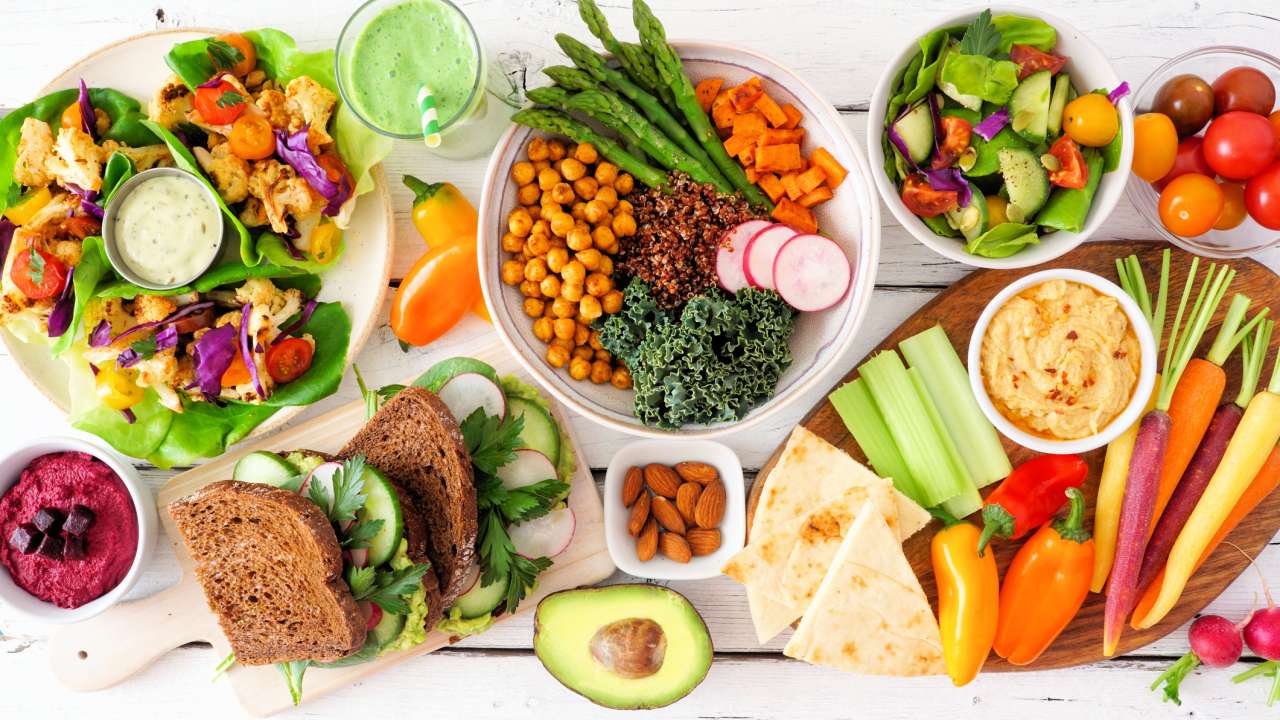Plant-based diets aren’t just trendy. They’re good for your health — and the health of the planet. That’s one reason why Americans seem to be taking the idea of eating more plants to heart. Even though only 4% of the population calls themselves vegetarians (people who eat no meat or fish), 36% say they’re trying to eat less meat.
The good news is that you can do both: eat a healthy plant-based diet without giving up meat.
What does “plant-based” really mean?
A plant-based diet isn’t necessarily the same thing as a vegetarian (no meat) or vegan (no animal products) diet. A plant-based or plant-forward way of eating means that you are putting more focus on fruits and vegetables, whole grains, beans, nuts and seeds. Many people aim to eat a plant-based diet while still including moderate amounts of meat, fish, eggs, dairy or other animal products.
A flexitarian diet can be a healthy compromise
If you decide to eat a diet that’s packed with plant foods (but isn’t 100% vegetarian), you could call yourself a flexitarian. A flexitarian diet describes a way of eating that calls for mostly vegetarian choices with some carefully chosen animal products mixed in.
The key to a healthy, plant-based, flexitarian diet is choosing the right foods and limiting the wrong ones. You don’t want to give up meat only to replace it with less nutritionally dense choices. Avoid subbing in lots of packaged, ultra-processed foods (such as boxed mac and cheese, frozen pizza, fast food or even some plant-based meats). Instead, trade your burgers for whole, unprocessed or less processed plant foods — like beans, tofu, whole grains and vegetables.
The benefits of eating less meat
Even if you don’t cut meat completely out of your diet, there are several benefits to eating less of it. First, there’s the impact on the planet. Animal agriculture is a leading cause of methane gases in the atmosphere. Methane is a type of greenhouse gas that is linked to climate change.
And then there are the numerous ways in which a more plant-based diet can improve your overall health:
- Better weight management
- Lower cholesterol
- Lower risk of heart disease
- Reduced risk of diabetes
A plant-based diet is healthier than one heavy on meat for a variety of reasons. Replacing meat (especially red meat) with plant-based foods means consuming less saturated fat, which is linked to an increased risk of heart disease.
Packing your diet with plant foods also gives you high amounts of important nutrients — many of which are lacking in a typical American diet. Eating a plant-based diet can drastically increase your intake of fiber. A diet rich in fiber:
- Decreases your risk of colorectal cancer
- Helps prevent weight gain
- Keeps blood sugar steady
- Lowers your cholesterol
Fruit, vegetables, nuts, seeds and grains are all rich sources of potassium, antioxidants like vitamins C and E, and carotenoids. All of these important nutrients help keep the body healthy by lowering blood pressure, reducing inflammation and helping to prevent cancer.
One study looked at the effects of substituting plant protein for just 3% of the calories in your diet from red meat. The researchers found that those who made that small swap had a 12% lower risk of dying from any cause.
Can I get enough protein without eating meat?
Whether you’re cutting down — or completely cutting out — meat, you may worry about getting enough protein in your plant-based diet. It’s true that meat and other animal products are rich sources of protein. But they’re not the only ones.
On average, most men should eat about 56 grams of protein per day, and women should aim for 46 grams. You can get all the protein your body needs from a carefully chosen selection of high-quality plant-based foods.
For example:
- One cup of tempeh contains 34 grams of protein.
- One cup of tofu has 23 grams.
- Lentils have 18 grams per cup.
- Almonds have 15 grams in a half-cup.
Even vegetables contain small amounts of protein, such as the 3.5 grams you get in a cup of cooked kale. And if you continue to eat some meat along with your plant-rich diet, you’ll have no trouble getting plenty of protein — along with the health benefits that all those plant foods provide.



